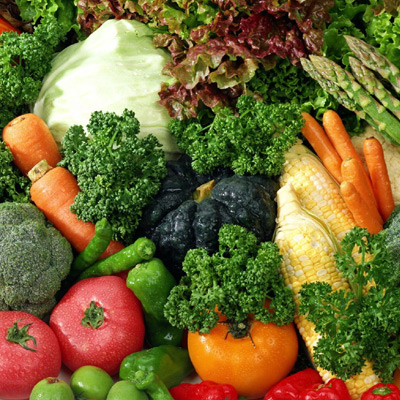 The meat industry doesn’t advertise these statistics. The more meat you eat, the higher your cancer risk. Practically all anti-cancer diets recommended by experts recommend the reduction of red meat from your diet and to move to a plant-based diet.
The meat industry doesn’t advertise these statistics. The more meat you eat, the higher your cancer risk. Practically all anti-cancer diets recommended by experts recommend the reduction of red meat from your diet and to move to a plant-based diet.
According to The World Health Organisation and The World Cancer Research Fund, diet and nutritional factors can play a major role in both the causes and prevention of cancer. Diets for preventing or fighting cancer are predominantly plant-based that include a variety of vegetables, fruits and whole grains. Vegetarians are around 50% less likely to develop cancer than those that eat read meat1.
Nearly one-third of all cancer deaths can be attributed to diet, with meat being a clear contributor. Numerous studies from top scientists have found that eating the flesh of cows, chickens and other animals promotes cancer2 . The most scientifically rigorous example is the link between meat and colon cancer, where the prolonged consumption of red and processed meat has repeatedly revealed an increase in the risk of cancer in the large intestine3 .
Epidemiological studies following tens of thousands of people continually show that those people who avoid meat, fish and poultry have dramatically lowered rates of prostate, ovarian and colon cancer compared to meat-eaters, and the lowest cancer rates are found in people who have avoided meat for 20 years or more. Breast cancer and prostate cancer have also revealed links to meat, and men diagnosed with prostate cancer can slow or even halt the progression of the disease with a diet rich in fruits, vegetables and grains4.
Top epidemiological researchers believe that animal proteins are the prime carcinogen in meat and dairy products. Fat is likely a culprit too – the high saturated fat levels found in meat may raise estrogen levels, whereas plant-based diets tend to keep them to a safe level, which doesn’t promote cancer cell growth. Importantly fiber, a nutrient found in abundance in vegetarian diets, can boost our body’s ability to eliminate excess estrogen, reducing the risk of cancer5.
By eliminating animal products from our diets we can protect our health rather than harm it.
Sources:
2. Red Meat Consumption and Mortality Results From 2 Prospective Cohort Studies
3. Meat consumption and the risk of colorectal cancer
4. Food, Nutrition, Physical Activity and the Prevention of Cancer: a Global Perspective
2 Responses to “Anti-Cancer Diets Recommend Meat Reduction”
Agree or disagree with this post? Leave a comment below.
Your email address will not be published.
Enter Code: *
Do not include website links or HTML in the reviews, they will be removed.


February 27, 2013
I’m always wary of statistics, even when they prove facts I agree with. For every study that says X causes cancer, another counteracts saying X is harmless. But at the end of the day, meat just isn’t good for you. The way we load animals up with low quality, unregulated food and growth hormones just screams future disasters to me and it wouldn’t surprise me at all if there really is a link to cancer. It will be interesting to see how it develops in future populations who have only ever eaten meat loaded with chemicals. Hopefully if concerns become widespread, everyone will learn to switch off meat.
February 27, 2013
With the recent horse meat fiasco in the UK, it’s becoming clearer than ever that the meat industry is not to be trusted. When the amount of hormones in regulated meat production is already considered high, I hate to think what may have gone into an animal which has skipped the usual checks and balances of the food industry. Why risk it?